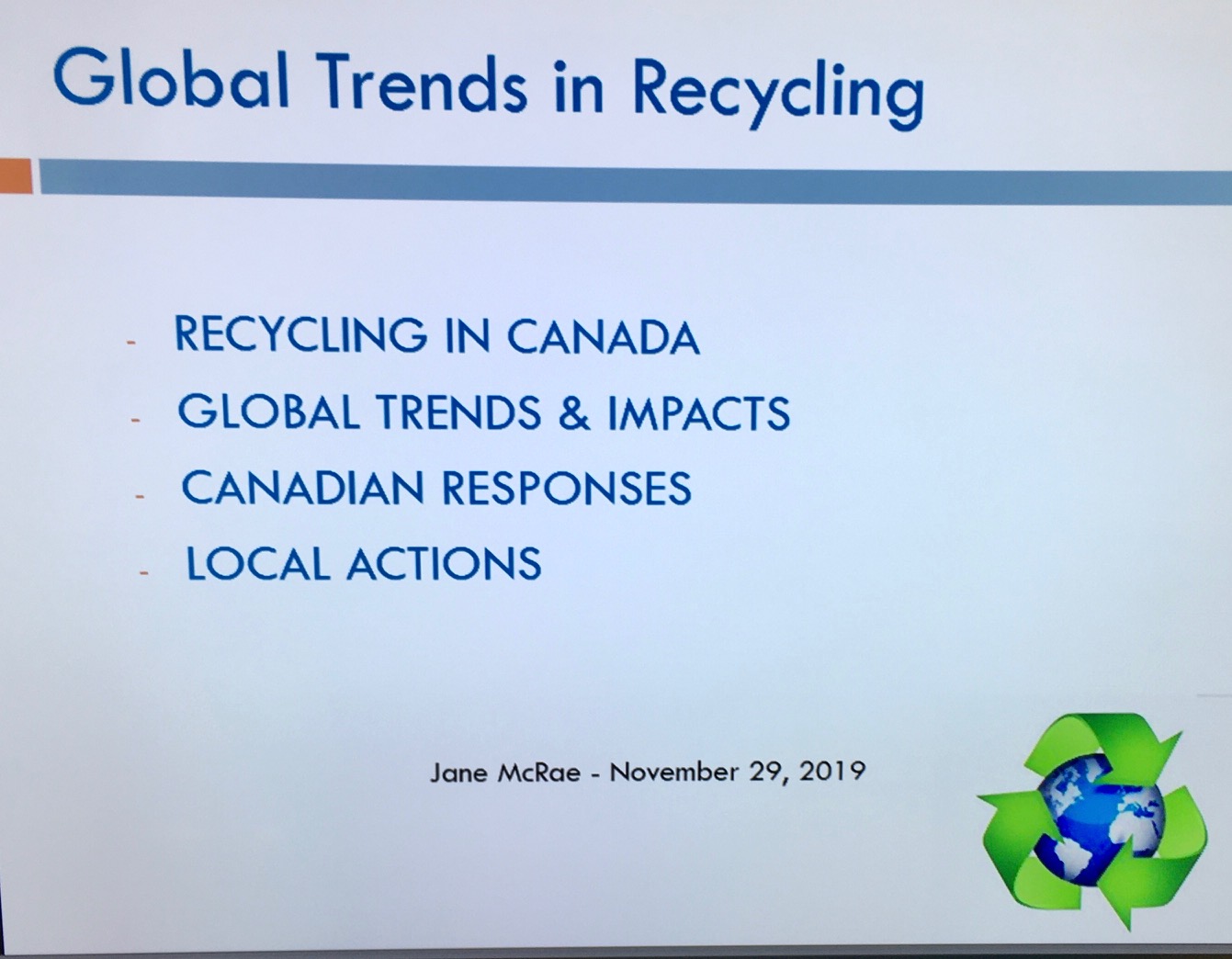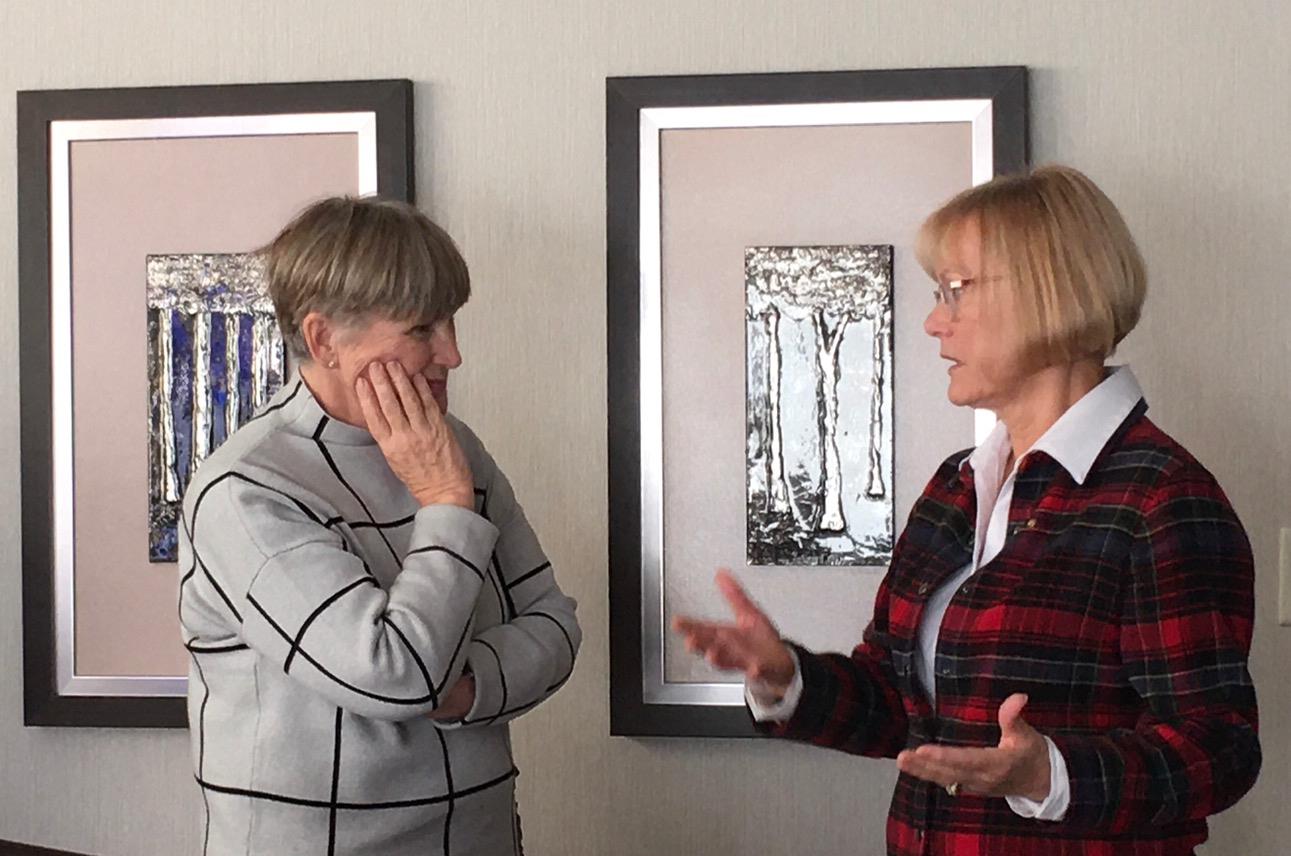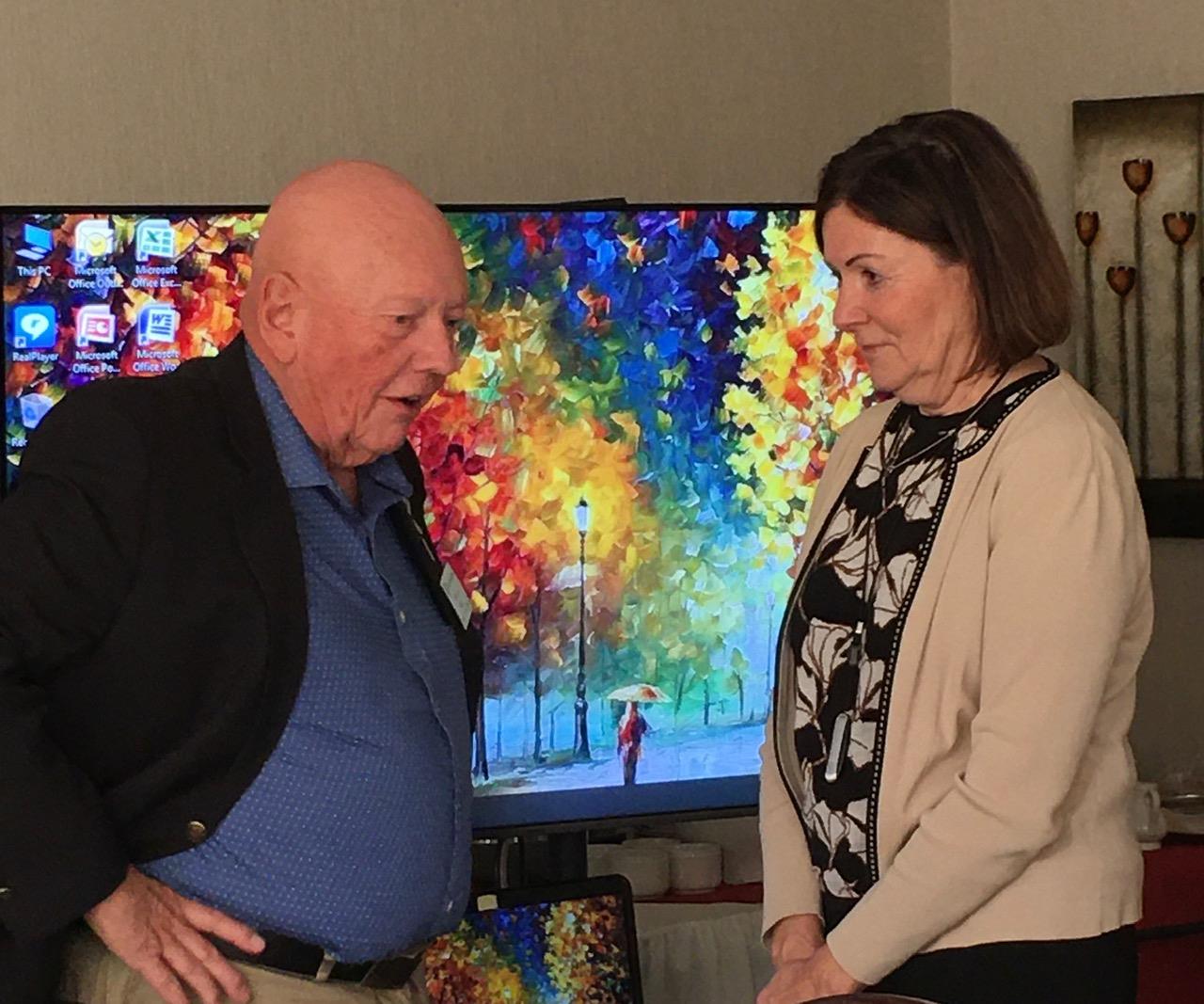

Our speaker was Jane McRae, who firstly declared that her subject was Sustainable Global Trends in Recyclables, and secondly that
she had not given this talk before, nor, presumably, shown to others the slides that accompanied her talk. It was also subsequently revealed that she had specifically come to Vancouver for the day, but altered her schedule to ensure that she presented to our club this important topic.
Her first foray into the unhappy environmental and wastage scenario was, very suitably for our club, a lament on the state of the oceans and the fish that are (not so) slowly losing sway over their domain. Naturally, our club has over the years and primarily under Joyce’s tutelage attained a quite comprehensive knowledge of the lamentable state of the world’s oceans, and particularly of its foreshores. Nevertheless it is instructive, and probably necessary, to repeat the fact that the massive floating garbage patches located in the Pacific have, and will long continue to have, a massive impact on the health of the world’s fishing communities. (Let it not be forgotten, however, that sometimes nature itself is not so benign in its creations (witness the Sargasso Sea) unless and until its bestirs itself to eventually find utility in what initially looks like a completely malign phenomenon, though even that natural garbage patch is now attracting a vast amount of plastic waste).
The obvious question “why recycle?” leads to obvious answers (to conserve resources, eliminate landfill and lower carbon emissions) but still does not resolve the present inequality between the doable and the necessary. Of Canada’s 33.4m tons of waste annually generated, B.C. is the second lowest per capita province in the country, but this fact is scant cause for praise; as Jane stated, the ‘low-hanging fruit’ of available remedies has already been garnered. As we all know, plastics are merely the biggest of the problem, but it was mentioned that ‘plastics’ covers a multitude of offensive products … but mankind needs them for its current prosperity (recall that in ‘The Graduate’ Dustin Hoffman was advised to “get into plastics”. How true that prognostication turned out to be!).
The subject was too vast to cover in half an hour, and it was quickly manifest that despite almost total consensus among our audience, we could well still be sitting in Amica discussing this enormously important topic even at this moment. However, we ended on the slightly favourable topic of the Ellen MacArthur Foundation, an engine-room of ideas designed to recognize the total necessity of plastics, but simultaneously how too reduce the extent of the unneeded penumbra of useless products (like packages designed only to pack the interior packages of the packed goods themselves: Amazon, please take note!).
Her first foray into the unhappy environmental and wastage scenario was, very suitably for our club, a lament on the state of the oceans and the fish that are (not so) slowly losing sway over their domain. Naturally, our club has over the years and primarily under Joyce’s tutelage attained a quite comprehensive knowledge of the lamentable state of the world’s oceans, and particularly of its foreshores. Nevertheless it is instructive, and probably necessary, to repeat the fact that the massive floating garbage patches located in the Pacific have, and will long continue to have, a massive impact on the health of the world’s fishing communities. (Let it not be forgotten, however, that sometimes nature itself is not so benign in its creations (witness the Sargasso Sea) unless and until its bestirs itself to eventually find utility in what initially looks like a completely malign phenomenon, though even that natural garbage patch is now attracting a vast amount of plastic waste).
The obvious question “why recycle?” leads to obvious answers (to conserve resources, eliminate landfill and lower carbon emissions) but still does not resolve the present inequality between the doable and the necessary. Of Canada’s 33.4m tons of waste annually generated, B.C. is the second lowest per capita province in the country, but this fact is scant cause for praise; as Jane stated, the ‘low-hanging fruit’ of available remedies has already been garnered. As we all know, plastics are merely the biggest of the problem, but it was mentioned that ‘plastics’ covers a multitude of offensive products … but mankind needs them for its current prosperity (recall that in ‘The Graduate’ Dustin Hoffman was advised to “get into plastics”. How true that prognostication turned out to be!).
The subject was too vast to cover in half an hour, and it was quickly manifest that despite almost total consensus among our audience, we could well still be sitting in Amica discussing this enormously important topic even at this moment. However, we ended on the slightly favourable topic of the Ellen MacArthur Foundation, an engine-room of ideas designed to recognize the total necessity of plastics, but simultaneously how too reduce the extent of the unneeded penumbra of useless products (like packages designed only to pack the interior packages of the packed goods themselves: Amazon, please take note!).

